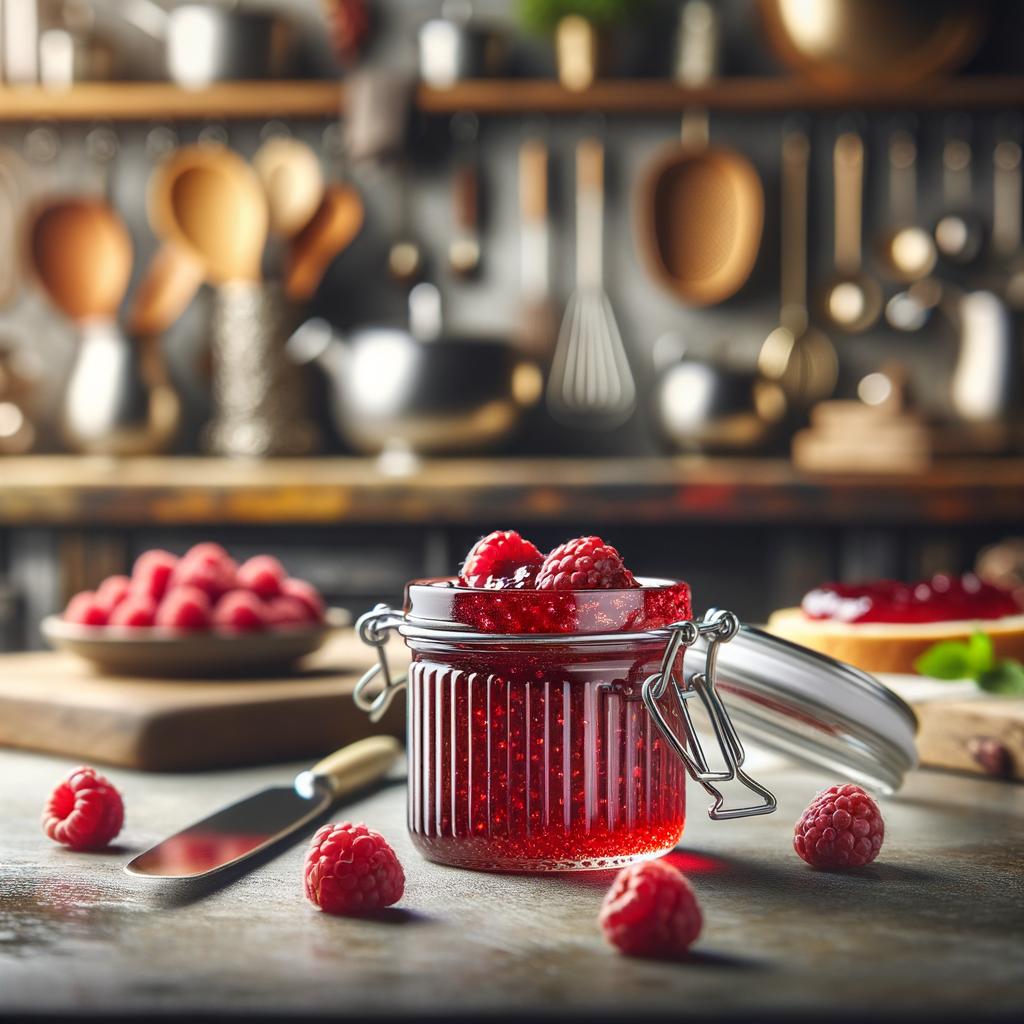Raspberry Preserves

Description
Raspberry preserves, a delightful concoction of sweet and tart, is a pantry staple in many households. The preserves are a vibrant, ruby red, a visual treat that mimics the lusciousness of the fresh berries from which it is made. The texture is a delightful combination of smooth, syrupy jelly interspersed with tiny, succulent seeds. The flavor profile is a delicate balance of sweet and tart, the natural acidity of the raspberries cutting through the sweetness of the sugar. What sets raspberry preserves apart from other fruit preservatives is the distinct, intense flavor of raspberries that lingers on the palate, a testament to the fruit's robust character.
Primary Uses
Raspberry preserves are versatile and find their way into numerous culinary applications. They are a quintessential component of a classic breakfast, slathered on warm, buttered toast. They are also a key ingredient in many baked goods, adding a sweet-tart element to cookies, cakes, and pastries. The preserves are often used as a filling for donuts, a glaze for meats, and a sweet contrast in cheese platters. Beyond the culinary world, raspberry preserves have cultural significance in many European countries, where they are used in traditional holiday recipes.
History
The story of raspberry preserves is as rich and vibrant as the preserves themselves. The practice of preserving fruits dates back to ancient times, with evidence of fruit preserves found in Roman cookbooks. However, it was in the Middle Ages, when sugar became more widely available, that the art of making preserves truly blossomed. Raspberries, with their intense flavor and abundant harvest, quickly became a popular choice for preserves. Over time, raspberry preserves became a symbol of hospitality in many cultures. In Russia, for instance, a jar of homemade raspberry preserves is a traditional gift for a cherished guest.
Nutritional Information
Raspberry preserves, while a sweet treat, also offer nutritional benefits. They are rich in Vitamin C and fiber, thanks to the raspberries. The seeds provide a small amount of protein and omega-3 fatty acids. While the sugar content is high, it is comparable to other fruit preserves. Consumed in moderation, raspberry preserves can be part of a balanced diet. However, those with diabetes or other sugar-related health concerns should be mindful of portion sizes. Despite the sugar, raspberry preserves retain the health benefits of raspberries, including potential anti-inflammatory and anti-cancer properties.

